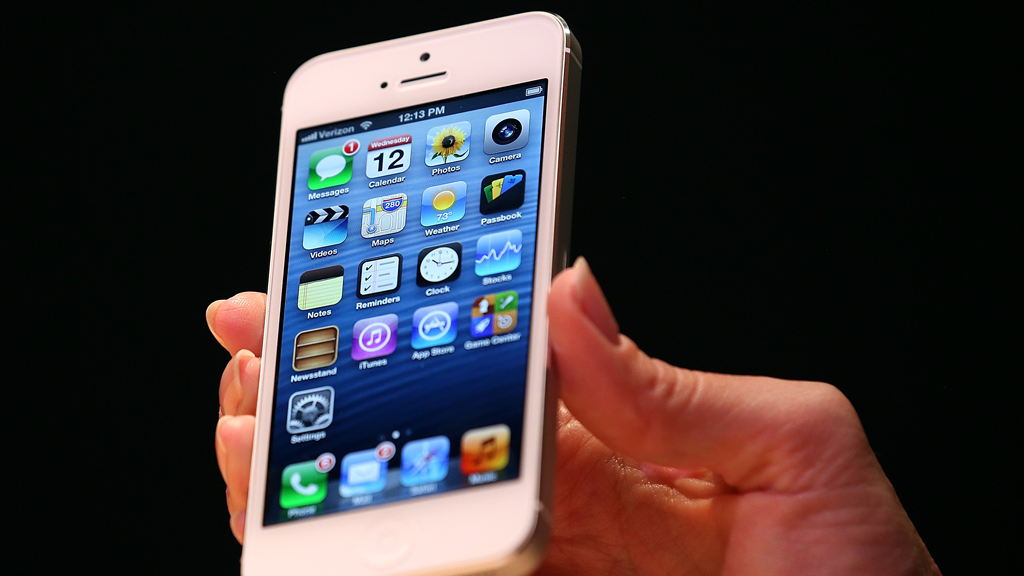Apple plays it stylish but safe with the iPhone 5
There were few surprises at the launch of the most hyped product release of the year, but the new iPhone 5 is another stylish, user-friendly offering that will see sales soaring.

Since the late Steve Jobs took to the stage and unveiled the first iPhone six years ago, the seasonal launch of Apple‘s latest model has become the highlight of the tech calendar for Apple fans and technology geeks alike.
This year was no different, but despite Apple’s strict privacy policy, little that was revealed on Wednesday night in San Francisco caused any major surprises. It debuted its new iOS 6 software in June which meant that many of the new phone’s evolutions were predicted.
But that doesn’t take away from the slick and stylish new offering from Apple. The iPhone 5 is thinner, faster and 20 per cent lighter, with a bigger screen than its predecessor. The camera also has new features, with a panoramic feature and a low lighting option, but remains an eight megapixel model – a lower specification than LG and Sony’s devices.
The new operating system allows another row of icons to the phone’s home screen, a new, 3D version of digital maps and a feature called Passbook, which allows payment apps or airline tickets to be pulled up from the locked home.
Another appealing feature is the speed: the iPhone 5 will run twice as fast as the iPhone 4S, thanks a new processor. It is the first iPhone capable of 4G broadband technology, which will be rolled out in the UK within a few weeks.
Living up to the hype?
There is a lot of pressure riding on the iPhone 5 – the first phone to be launched since Steve Jobs passed away last year – because the changes to the last product were thought to be so slight. But initial reaction from the tech world appears to be quietly confident.
“Apple launches can seem like a list of minor event boring changes – shaving off 27 grams and changing the layout of iTunes for example,” Anna Leach, reporter for tech website The Register told Channel 4 News. “But even if any individual change seems minor, when it’s tied in with the software, it can make for a noticeably different user experience. That’s why Apple have always done so well.”
Apple will be hoping to get back on top of smartphone charts with the new model, fighting off competition from Google’s Android and Samsung as the widely used software. Patrick Goss, Tech Radar editor anticipates massive sales, despite the lack of shock surprises.
“Given the level of hype around the Apple iPhone 5, it’s almost inevitable that phone itself ends up feeling a little underwhelming when it is launched, but Apple is a past master at ticking the boxes, and giving its growing legion of fans enough to justify an upgrade,” he said in his review of the new phone.
“Is it going to sell like hot-cakes? Of course. Will it send shockwaves shuddering through the tech world and turn competitors back to their drawing boards? No.”
The new handset will launch on 21 September and will no doubt see people queuing through the night to get their hands on the tech giant’s latest offering. Apple also announced updates and resdesign to iTunes and unveiled new iPods at its launch on Wednesday night.
Channel 4 News Technology Producer Geoff White says it's the 4G in iPhone 5 that matters:
The iPhone 5 is a major departure from Apple's previous product launches, because its major selling point is not about the handset at all - it's about the network.
While previous iPhones brought us neat styling, super-smooth scrolling and Siri (admittedly a mixed blessing), the iPhone 5's key selling point is that it will work on the new, superfast 4G phone network.
In the UK, that means Everything Everywhere (or EE as it's now called) will be the first network to support the phone. Much to other networks' chagrin, EE will have a seriously desirable product, on the country's fastest network.
Whether users are fired up enough to pay top-dollar monthly contract fees for a 4G iPhone 5 remains to be seen (£40 a month is my prediction).
But the fact that the iPhone 5's big new feature is in its network capability rather than in the handset itself is hugely significant, and goes to the heart of where Apple is moving as a company under its new chief exec.
The iPhone 5 may have been conceived by Apple's late co-founder Steve Jobs, but the midwife was his successor Tim Cook, and the Cupertino giant's new baby is very much his.
Jobs was a gadget fanatic, and almost every product that gained his approval was beautifully styled, lovely to use, and feature-packed - like the iPhone's previous incarnations.
Cook, by contrast, is Apple's master deal-maker; the man who helped hard-ball music publishers into agreeing that tracks on iTunes would sell for 99p, for example. And so the iPhone 5 is not a gadget revolution; it's a 4G contender.
As such, Apple will have to wheel and deal with the network operators running that 4G infrastructure, coming up with attractive deals for consumers. And they no longer have a handset that's irresistible in itself, so the competition from rival manufacturers' 4G handsets will be fierce, to put it mildly.
Apple are going to have to fight harder than ever before to make the iPhone 5 a success.